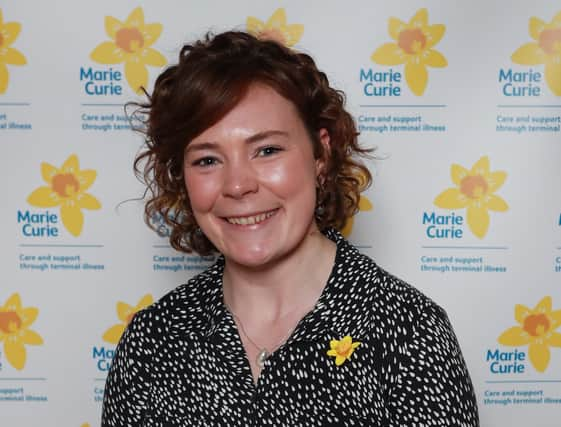Research will explore challenges faced by carers during pandemic - Ellie Wagstaff


Identifying unpaid carers to ensure they receive the support they are entitled to can often be difficult. This must be improved as many do not self-identify as carers or get picked up by formal services, and therefore miss out on support and benefits they may be eligible for.
During the pandemic, there has been a 40 per cent increase in deaths at home, and Carers Scotland has reported that almost 80 per cent of carers said the needs of the person they were caring for increased. But it is unclear if carers of terminally ill people received all the support they needed during a time when health and social care services were so stretched.
Advertisement
Hide AdAdvertisement
Hide AdIt is also estimated that an additional 400,000 people took on unpaid caring roles during the first Covid-19 lockdown, taking the total number of unpaid carers in Scotland to 1.1 million. Many are completely exhausted and are at breaking point; 66 per cent have reported a worsening in their own mental health.
Having a live-in carer is one of the most important factors in whether someone is able to die at home or not, but family carer breakdown is the most likely factor in a person with a terminal illness being admitted to a hospital, hospice or a care home.
Evidence from Marie Curie services during the pandemic found that many terminally ill people with family carers were slow to engage with services and often much later at crisis point which caused further challenges.
Marie Curie and the University of Birmingham are seeking the experiences of bereaved family carers, who looked after someone who was terminally ill at home during the pandemic, for a piece of research which will explore the challenges faced by carers to inform future provision of support.
The research aims to better understand the level of support family carers accessed and received from health and social care professionals during the pandemic, and will document key learnings for the provision of effective support for family carers in future.
Demographic changes predict more people will be dying in the coming decade which is likely to see a mirrored increase in the number of family carers. Identifying gaps in care now is crucial for the development of support available to family carers of terminally ill people to ensure they have full access to the physical, emotional and financial support they need.
We are seeking experiences of bereaved family carers who cared for a terminally ill person over 16 at home between October 2020 and March 2021 and received support from Marie Curie services to inform our research.
If you would be willing to share your experience, please get in touch with Susan Swan [email protected]
Ellie Wagstaff, Policy and Public Affairs Manager, Scotland, Marie Curie
Comments
Want to join the conversation? Please or to comment on this article.